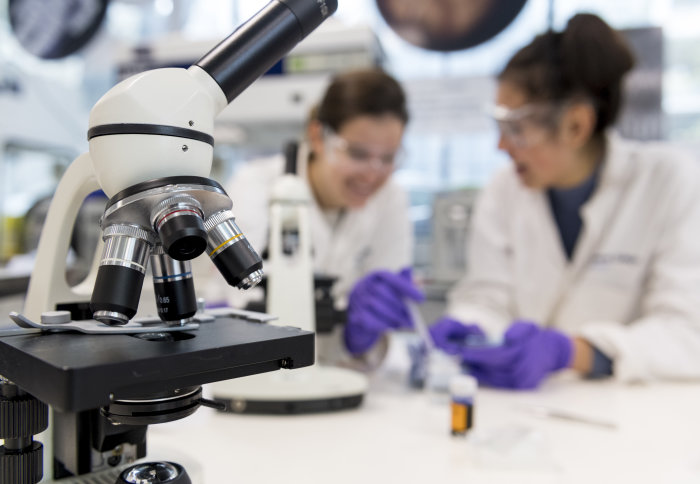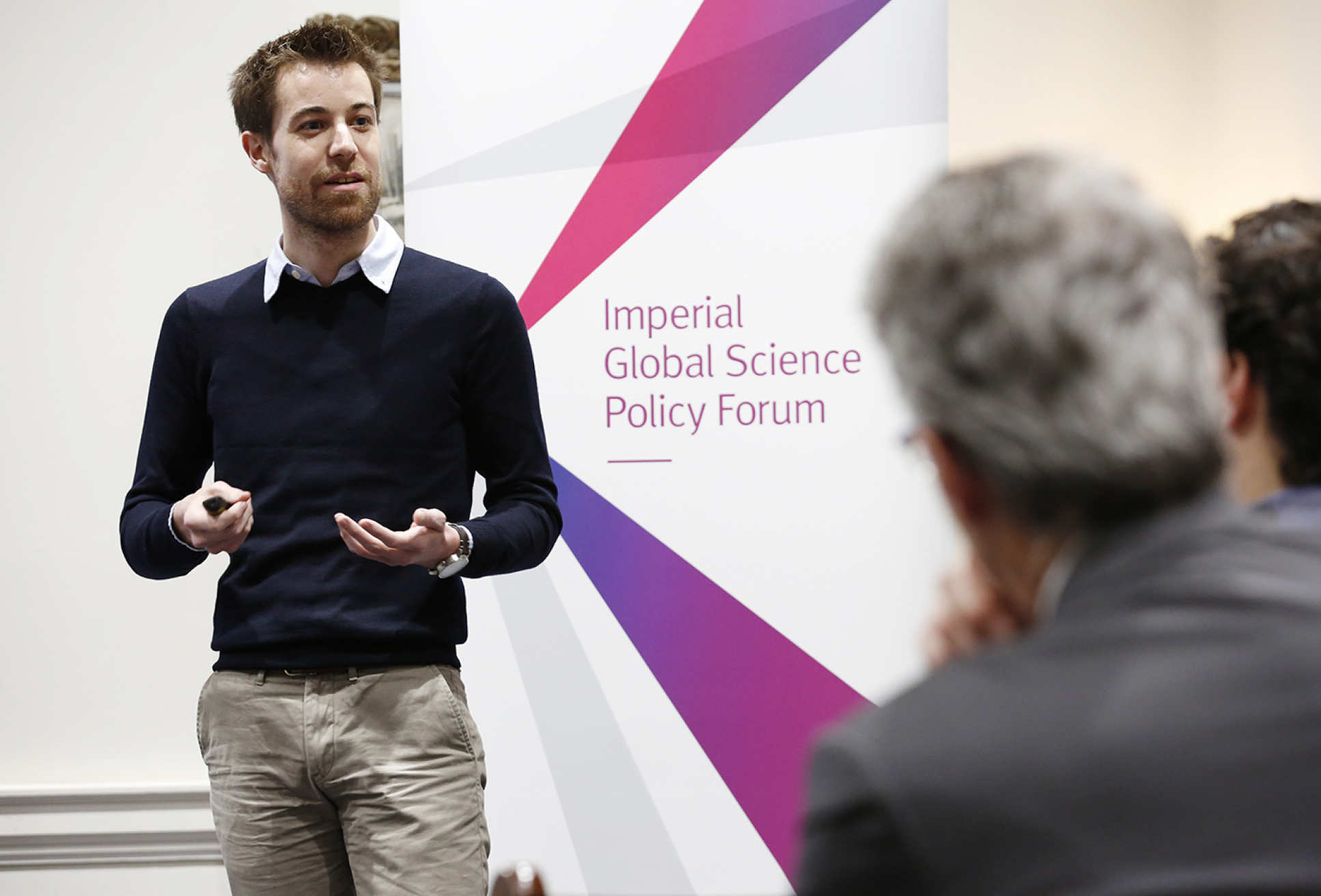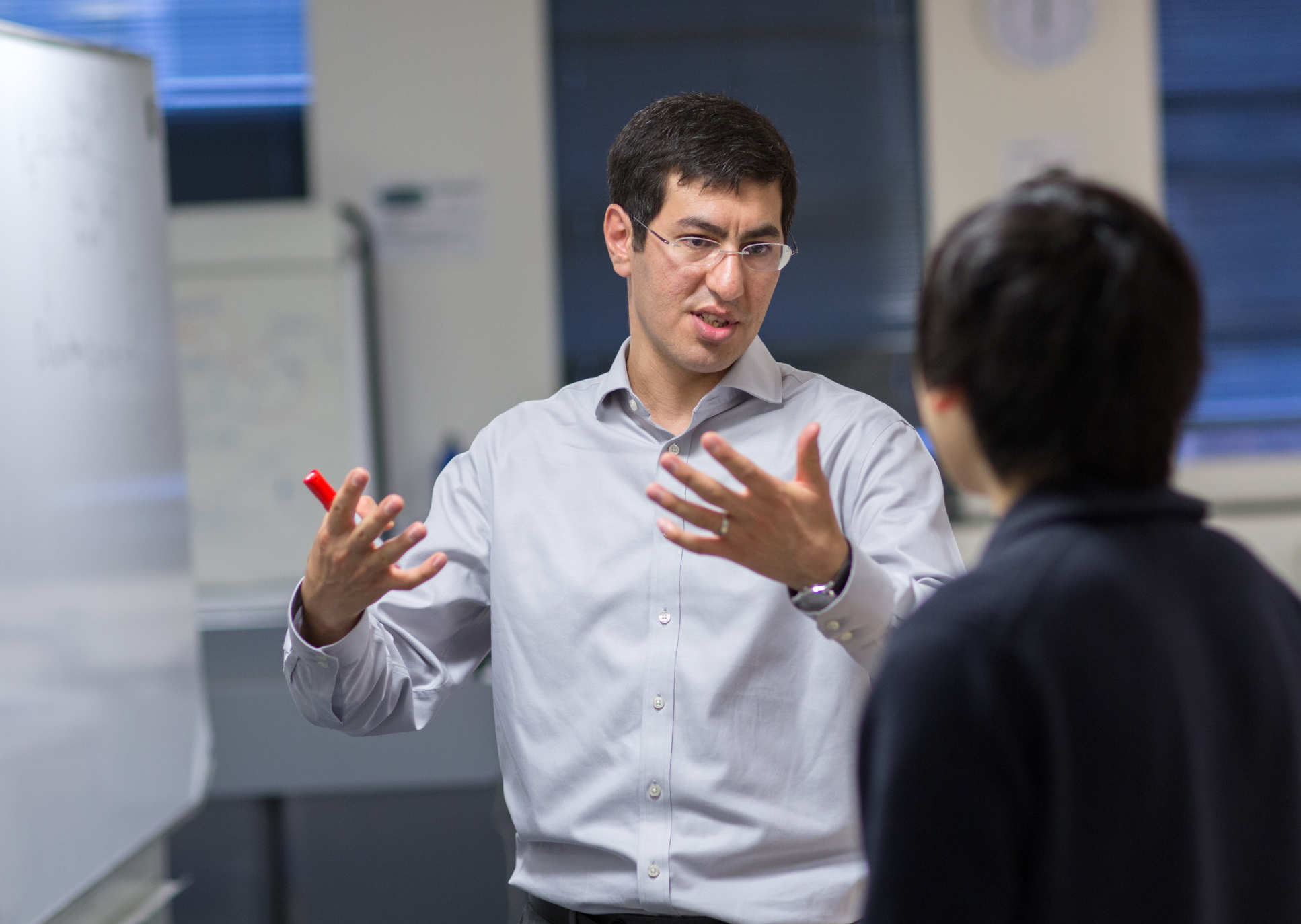European collaborations fuelled by Imperial seed fund

Data privacy, particle physics and cancer prevention are some of the projects that have received a funding boost to strengthen European collaboration.
The European Partners Fund, awarded by Imperial College London, provides up to £100,000 per year for seed funds and travel grants for Imperial academics to initiate and pursue collaborations with European colleagues.
Nearly 30 projects have received funding since the programme was launched in 2016.
The projects cover a range of research areas such as mathematics, robotics, health, data and engineering.
This year ten projects have received funding so far to collaborate with institutions in countries including Germany, Italy, Spain, Switzerland and the Netherlands.

Vice-Provost (Research and Enterprise) Professor Nick Jennings said: “Collaboration across borders between academics of different nationalities produces the highest quality research and a third of our collaborators are currently from Europe. We want those relationships to grow.
“This fund allows our academics to build new relationships and work more closely with European partners. Many of these projects have already strengthened our ties with other world class institutions and the subsequent discoveries will benefit society greatly in the future.
“Imperial is a European university with global reach, and has consistently been named the UK’s most international university. We will keep supporting European and global collaborations.”
Some of the recently funded researchers discussed their projects:
Protecting Privacy

Dr Yves-Alexandre de Montjoye, from the Department of Computing, is collaborating with Université catholique de Louvain, Belgium to develop privacy tools.
The goal of the research is to help make large-scale such as mobile phones, credit cards or browsing data, more available while truly preserving privacy.
Dr de Montjoye said: "The availability of large-scale data dramatically increases our capacity to understand and potentially affect the behaviour of individuals and collectives.
"The use of this data, however, raises legitimate privacy concerns.
"The traditional data protection mechanism, de-identification, fails to protect people's privacy in the age of big data.
"Sensitive information can often be inferred from seemingly innocuous data and individuals can be identified despite anonymising names or phone numbers.
"We are developing tools to allow large-scale behavioural data to be used while giving individuals strong privacy guarantees."
Mathematics collaboration

Dr Davoud Cheraghi, from the Department of Mathematics, is developing a partnership with Université Pierre et Marie Curie (UPMC) and Université de Toulouse in France.
The partnership will enhance the understanding of low-dimensional analytic dynamics.
Dr Cheraghi said: “This funding will allow us to strengthen our links with researchers at partner institutions in France.
“These collaborations with the French network are expected to bring together a wide range of expertise and they have well established links to many groups in other countries.”
Imperial has a strong tradition of collaborating in mathematics with European partners. Earlier this year Imperial and France's CNRS launched a joint mathematics laboratory.
Article text (excluding photos or graphics) © Imperial College London.
Photos and graphics subject to third party copyright used with permission or © Imperial College London.
Reporter
Stephen Johns
Communications Division